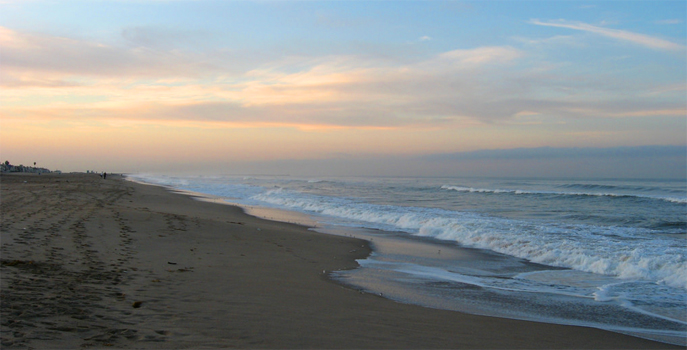
Oxnard, California (photo by Ken Lund)
California Energy Commission Rejects License for Puente Power Plant, Marking the End of New Gas Plants in California
Last night, the California Energy Commission (CEC) issued a unexpected statement, with content no less surprising than its timing: the CEC wrote that it will reject the license for the Puente Power Project, a new 262 MW new gas fired peaker proposed in Oxnard, California -- and that the need for the project could instead be met with clean energy.
For the last three years, the Sierra Club has been fighting this singularly ill-conceived project as part of a large coalition including the CAUSE, CEJA, and the City of Oxnard. It is hard to imagine a project more at odds with California’s commitment to equity, greenhouse gas reduction, and climate resiliency: Puente would have added another polluting resource to a community already home to six other gas plants and burdened by significant air pollution, where asthma rates are in the 90th percentile statewide. The gas plant was to be built on the beach, atop biologically-rich wetlands and coastal dunes that provide endangered species habitat. The coastal location also meant the site was at risk of severe flooding and eventual inundation from the climate-induced sea level rise that will occur over the project’s lifetime. And the facility would have violated the land use rules of a city eager to move past a legacy of industrialized coastal development and enjoy its beaches in the manner adjacent, wealthier communities have long taken for granted.
Last year, the CPUC narrowly approved the project’s power purchase contract with Southern California Edison, overruling the Administrative Law Judge’s original decision. The focus then turned to the review of Puente’s environmental impacts, conducted by the CEC.
While the CEC was legally required to evaluate alternatives to Puente, clean energy options were not fully vetted. In June, the California Independent System Operator (CAISO) offered to conduct a special study analyzing whether renewable resources were a viable alternative to the gas plant. The CAISO study concluded that multiple alternatives, based on a combination of distributed generation, energy storage, and reactive power support, would be technically feasible alternatives to Puente -- but it based estimates of the costs of these alternatives on outdated data. However, in a subsequent letter, CAISO clarified that the cost of preferred resources was not prohibitive, and the only way to accurately assess cost was through a new competitive solicitation.
While the CEC is allowed to approve a power plant even if it would cause environmental impacts (called an “override”), the agency must accompany the override with the conclusion that no other feasible alternatives exist that would mitigate those impacts. The CAISO finding that preferred resources could feasibly meet the area’s reliability needs made that override impossible.
When finalized, this decision will represent a hard-fought victory for a community that knew it deserved cleaner air and open beaches. It’s also a powerful statement that California has reached a turning point in our fight against climate change: we need no longer rely on new fossil-fueled power plants to meet local energy needs. NRG named the project Puente (in Spanish, “bridge”), but with this decision, the CEC is saying that bridge is unnecessary: our clean energy future is already here.